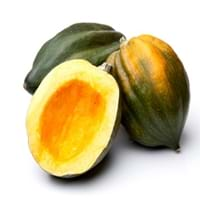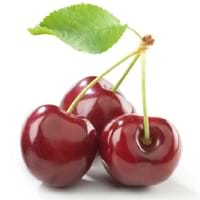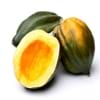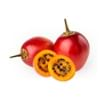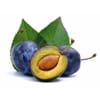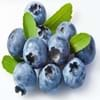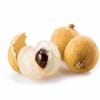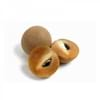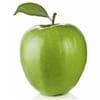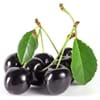Health Benefits
Anti-inflammatory properties, Arthritis treatment, Regulates Blood Sugar
Arthritis prevention, Cancer prevention, Gout treatment, Heart care, Muscle pain relief, Regulation of heart rate, Treatment of alzheimer's disease
General Benefits
Boosts immune system, Controls blood sugar levels, Digestive aid
Anti oxidant properties, Anti-inflammatory properties, Controls blood pressure, Cures headache, Sore throat treatment
Skin Benefits
Nourishes skin, Protects skin from oxidative stress
Anti-aging benefits, Brightens and lightens complexion, Skin rejuvenation, Treatment of dark spots
Hair Benefits
Prevents hair loss, Promotes longer and healthier hair, Regulates hair growth
Acts as moisturizer, Protects hair, Regulates hair growth, Rejuvenates scalp
Allergy Symptoms
Asthma, Red rash, Swelling of mouth, tongue or lips
Anaphylaxis, Breathing difficulty, Fainting, Hives, Itching, Nasal congestion, Nausea, Swelling of mouth, tongue or lips, Tingling sensation in mouth, Vomiting, Wheezing
Side Effects
Diarrhoea, Vomiting
Abdominal cramps, Allergic reaction, Bloating, Intestinal gas
Best Time to Eat
Along with meal, As a snack in the late afternoon, Don't eat after meal, Eat the fresh ones, avoid mixing with any other foods, don't eat after meal.
Best if taken as a breakfast (or empty stomach), As a snack in the late afternoon, Don't eat after meal, Morning time (before lunch)
Vitamin B5 (Pantothenic Acid)
Vitamin C (Ascorbic Acid)
Vitamin E (Tocopherole)
Not Available
Vitamin K (Phyllochinone)
Not Available
Lutein+Zeaxanthin
Not Available
Phytosterol
Not Available
Calories in Fresh Fruit with Peel
Calories in Fresh Fruit without Peel
Not Available
Not Available
Varieties
Bush Table Queen, Heirloom Table Queen, Festival Hybrid, Early Acorn Hybrid, Table Ace, Ebony and Cream of the Crop
Vandalay, Stella, Tehranivee, Sonata, Whitegold, Symphony, Blackgold, Sunburst, Lapins, Skeena and Sweetheart
Color
Dark green, Green-yellow, Orange green
Red
Origin
Central America, North America, Unknown
Europe, Western Asia
Soil Type
Well-drained
Sandy
Climatic Conditions
Cold, Sunny
Cold
Facts about
- It was named as Acorn Squash for its resemblance to a large ribbed acorn.
- It is said that squash was being grown in Mexico as long as 10,000 years ago.
- It was the first food cultivated by native American Indians.
- The word cherry is derived from the Turkish town of Cerasus.
- In Oliver, British Columbia, a pie of 39,683 pounds was baked which holds the record of biggest cherry pie.
- National cherry cheese cake day is on April 23.
Top Producer
China
Turkey
Other Countries
Egypt, India, Iran, Italy, Mexico, Russia, Turkey, Ukraine, United States of America
Austria, Chile, China, France, Germany, Greece, Iran, Italy, Poland, Romania, Russia, Serbia, Spain, Syria, Ukraine, United States of America, Uzbekistan
Top Importer
Costa Rica
Russia
Top Exporter
United States of America
Poland
Botanical Name
Cucurbita Pepo
Prunus avium
Synonym
Winter Squash
Not Available
Subkingdom
Tracheobionta
Tracheobionta
Division
Magnoliophyta
Magnoliophyta
Class
Magnoliopsida
Magnoliopsida
Subclass
Dillenhidae
Rosidae
Order
Cucurbitales
Rosales
Family
Cucurbitaceae
Rosaceae
Generic Group
Not Available
Rose
Compare Acorn squash and Sweet Cherry
It is important compare Acorn squash and Sweet Cherry as both the fruits have a different nutritional value. Their comparison can be done on the basis of their vitamin and mineral content, calories, benefits as well as characteristics, making it easier for us to choose the best fruit for our diet. Their general health benefits are as follows:
Acorn squash Benefits: boosts immune system, controls blood sugar levels and digestive aid.
Sweet Cherry Benefits: anti oxidant properties, anti-inflammatory properties, controls blood pressure, cures headache and sore throat treatment.
Fruits are also used as a remedy for various hair problems. The hair benefits of Acorn squash are: prevents hair loss, promotes longer and healthier hair and regulates hair growth and hair benefits of Sweet Cherry are: acts as moisturizer, protects hair, regulates hair growth and rejuvenates scalp. Some fruits are known to cause allergic reactions. The allergy symptoms of first fruit are: asthma, red rash and swelling of mouth, tongue or lips and the symptoms of second fruit are: anaphylaxis, breathing difficulty, fainting, hives, itching, nasal congestion, nausea, swelling of mouth, tongue or lips, tingling sensation in mouth, vomiting and wheezing. Get sorted Acorn squash vs Sweet Cherry comparison with the help of fruit comparison tool by fruitvs.com.
